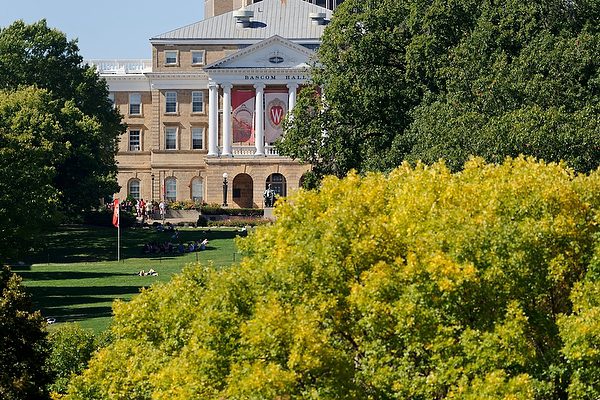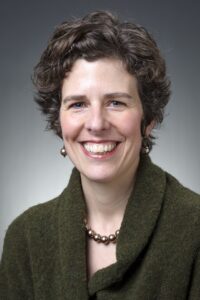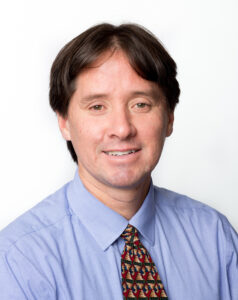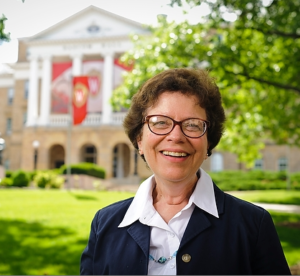
University of Wisconsin-Madison Prof. Kathy Cramer has touched a nerve with her book The Politics of Resentment, which explores Wisconsin’s rural-urban cultural divide. The book is attracting national attention in the context of our recent presidential election, but it also offers significant insights for those of us outside of the political realm, especially university leaders.

In 1862, President Abraham Lincoln signed the Morrill Act, creating a network of land-grant public universities to give all U.S. residents broader access to college. Wisconsin embraced this movement, boldly extending the university’s reach to every corner of the state. In the early 1900s, UW president Charles Van Hise gave the movement a name — “The Wisconsin Idea.”
Today, the University of Wisconsin-Madison takes great pride in this history of public service and outreach. In turn, most Wisconsinites are similarly proud of their university. However, Cramer’s research offers fresh evidence of a rift between the citizenry and the university.
Employing a uniquely personal approach to public opinion research, Cramer engaged people in 27 Wisconsin communities. She quietly invited herself to conversations at coffee shops, gas stations, dairy barns, and diners from 2007 through 2012. Her book distills these conversations and their political implications, and includes some disconcerting perceptions about our campus.
Cramer met people who praised UW athletic programs but criticized lofty admission standards and high tuition rates. When asked what we did well, people recalled the last Big 10 victory by our football, hockey, or basketball teams. When asked what we could do better, they suggested that we help stimulate the local economy and create jobs.
People thanked Cramer for showing up, showing respect, and listening. Most residents could not recall meeting someone else from UW-Madison. Those who had encountered a UW researcher told stories of academics who disregarded local laws and missed opportunities to tap the wisdom of area residents.
How do we bridge this gap? Cramer argues that the future of UW-Madison’s relationship with the public depends not on more communication, but on different communication. Reaching people through Facebook, direct mail, and digital banner ads is effective, but we must find ways to connect authentically.
Author and speaker Stephen Covey observed that “most people do not listen with the intent to understand; they listen with the intent to reply.” Our job as a public institution is to understand.
Speaking with employers
Cramer’s method provides one new blueprint. Another comes from UW colleague Matt Hora, who traveled the state listening to people’s concerns about the perceived disparity between workforce needs and university teachings.

Beyond the Skills Gap: Preparing College Students for Life and Work is the product of 145 interviews with educators and employers. Forsaking long-distance surveys and opting instead for face-to-face conversations, Hora and his co-authors listened to people describe what workers need, what employers demand, and how those expectations align with what students learn at UW.
The Skills Gap authors heard employers describe the need for workers who possess a strong work ethic, good problem-solving skills, the ability to communicate, and the desire to work effectively as part of a team. They heard people describe the demand for both narrow expertise and broader competencies.
Cramer and Hora investigated different research questions, but their methodologies featured one common ingredient — listening. Cramer listened to people express their political viewpoints and used those insights to help us better understand the rural/urban divide. Hora listened to people describe the disconnect between education and business and leveraged those findings to offer a model for better collaboration.
At the intersection of these far-reaching efforts is the notion that a big university can engage in more small conversations and learn a lot in the process.
Cramer observed that local UW-Extension agents — agriculture experts, 4H educators, and other community-based faculty and staff — enjoy a different relationship with their constituencies. Compared to their campus-based counterparts, these individuals are seen as community members first and university representatives second. They have built up a level of trust that allows them to function as effective conduits for university research that can improve lives and boost the economy.
Personal conversations
In 2015, UW-Madison sponsored a number of massive open online courses (MOOCs) designed to serve big audiences over long distances. Through a partnership with 21 Wisconsin libraries, we also convened face-to-face discussions to complement the online lessons. Those small conversations enriched the student experience and benefited our university. We got to hear firsthand how learning materials were received, whether lessons were understood, and how our teaching might be improved. As a result, we were able to tailor activities to meet local citizen needs.

UW-Madison Chancellor Rebecca Blank has been traveling the state lately, putting in lots of windshield time to meet with alumni, business leaders, and other key stakeholders. She has spoken to hundreds of people about the value of a strong public university and the need for reliable state support. What distinguishes those efforts, I think, is the personal nature of the conversation and the time she spends listening to local residents to better understand their needs. Gov. Scott Walker has proposed a budget that provides some reinvestment in higher education, and Chancellor Blank’s listening sessions position her to be a strong advocate for its passage.
These and other efforts show us that listening may require extra effort but also pays extraordinary dividends. Faced with limited resources and unlimited demands, it might be tempting to listen from a distance. Doing so, we could miss what people are really saying.
UW-Madison’s Division of Continuing Studies has a mission to provide lifelong learning opportunities to the broader community, including seminars and conferences focused on personal enrichment and professional growth. To do this effectively over time, we must monitor workforce trends, adjust our menu of courses, and keep pace with the latest teaching methods. We must pay attention to what people say and what they need. In other words, we must listen. That’s the key to achieving genuine collaboration, better outcomes for learners, and a brighter future for our public university.
This article originally appeared in the Capital Times.